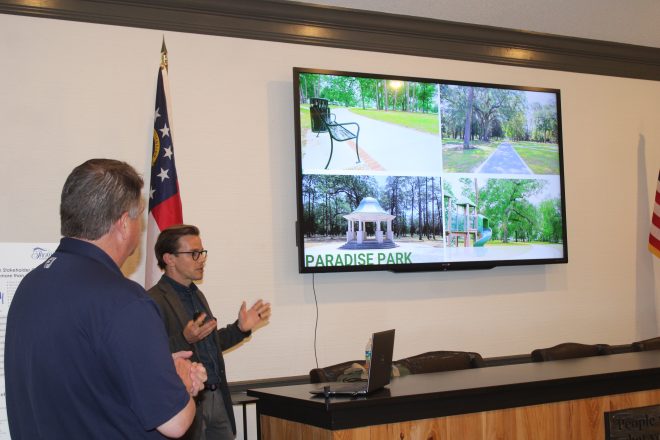Federal judge blocks new Florida abortion law
Published 2:00 pm Saturday, July 2, 2016
TALLAHASSEE, Fla. — A federal court decision blocking parts of an abortion-regulation law hours before it was set to take effect is far from the end of Florida’s legal battle over the issue, advocates on both sides said Friday.
U.S. District Court Judge Robert Hinkle issued an injunction against the law late Thursday night. It would have prevented funding for Planned Parenthood and required state regulators to inspect half of all abortion documents each year.
“I think he’s wrong on the law,” said John Stemberger, president of the Orlando-based Florida Family Policy Council. “I think (the Legislature) is clearly justified saying we’re only going to provide funding to non-abortion providers.”
The injunction is temporary while the case makes its way through the court. A spokeswoman for the Agency for Health Care Administration, which oversees health clinics, said officials were reviewing the ruling and haven’t made a decision whether to appeal.
AHCA and Planned Parenthood are expected to file legal arguments later this month.
The case is just the latest clash over abortion in the courts. In April, the Florida Supreme Court issued a temporary injunction against a 2015 law requiring a 24-hour waiting period for women seeking abortions. That case is still making its way through the courts.
The Florida rulings and a decision Monday by the U.S. Supreme Court striking down a Texas law requiring doctors at abortion clinics to have admitting privileges at nearby hospitals has pro-abortion advocates bullish about their chances of beating back laws they say chip away at the legal right to an abortion.
“Every point that we have made in all of this from the beginning has been confirmed (in court),” said Anna Eskamani, senior director of public affairs for Planned Parenthood.
But Sen. Kelli Stargel, a Republican and sponsor of the Senate version of the bill, slammed the ruling as judicial overreach.
“Yesterday’s ruling appears to be a clear infringement on both the Legislature’s constitutional authority to appropriate taxpayer dollars, and our responsibility to properly regulate medical facilities,” Stargel said in a statement.
Hinkle said lawmakers couldn’t block funding for Planned Parenthood’s other programs just because the organization also provides legal abortions.
“The Supreme Court has repeatedly said that a government cannot prohibit indirectly — by withholding otherwise-available public funds — conduct that the government could not constitutionally prohibit directly,” the ruling states.
During a hearing Wednesday, AHCA attorneys argued that since the state can block direct funding for abortions, they should be able to prevent indirect funding of abortion providers’ other services.
Planned Parenthood received about $500,000 in federal and local government grants last fiscal year, including grants for youth outreach, breast and cervical cancer screenings, and screenings for sexual transmitted infections.
Part of the funds, Eskamani said, went to pay for vasectomies for men referred to Planned Parenthood clinics in Orange County by the Florida Department of Health.
Stargel noted the Legislature set aside funds for similar programs at alternative health clinics.
“While this law eliminated the backdoor that allowed tens of thousands of dollars in state funds to pay for additional services and screenings provided at entities that perform abortions, the state budget that takes effect today provides millions in additional funding for these same women’s health services to be provided by clinics that do not perform abortions,” Stargel said.
Eskamani countered that many of those clinics and health centers aren’t geared toward reproductive health education and contraception. “These are programs that are going to reduce abortions,” she said.
Planned Parenthood’s grants and contracts expired Thursday, the last day of the fiscal year. Eskamani said the group will begin reapplying for funding.
“We feel very hopeful that we’re going to be able to work with our public partners to meet the needs of our community,” Eskamani said.





